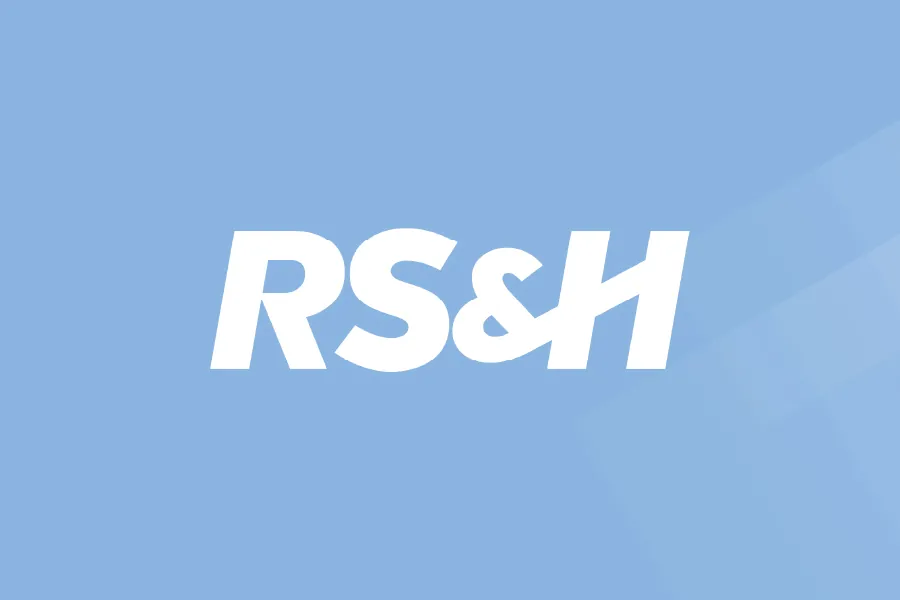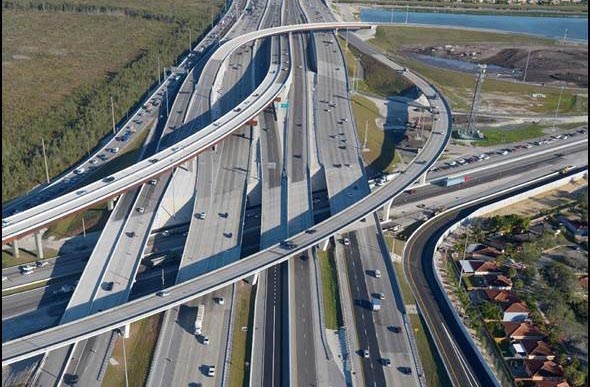RS&H I-75 Express Lanes Project Wins ACEC of Florida Award

In May 2019, the American Council of Engineering Companies of Florida (ACEC-FL) announced the I-75 Express Lanes design-build project as the year’s Outstanding Design-Build or Construction Management At-Risk Project. RS&H served as owner’s representative on the 15-mile, $485 million design-build project, which is notable for its complexity, considerable cost-savings and successful public involvement efforts.

Project Complexity
The project scope consisted of four barrier-separated managed lanes, two system-to-system connections, four service interchanges and five access points. It also included several new bridges, bridge widenings and deck replacements, sign structures, toll gantries and complicated intelligent transportation system (ITS) integration.
Project work was divided into several design-build projects occurring simultaneously, necessitating clear, organized communication among the various stakeholders.
“Although the project was highly complex, the caliber of the project team members made up for any challenging and complicating factors,” said RS&H Fort Lauderdale Highway Group Leader Doug Green.
Fort Lauderdale Office Leader Jay Turner agrees.
“This was a great team of people working together,” said Jay. “We were fortunate to collaborate with so many dedicated and experienced folks representing the Florida Department of Transportation (FDOT), consultants and contractors in delivering this high-profile project.”
Cost & Time Savings
As owner’s representative, RS&H advised on the selection of alternative technical concepts (ATCs) submitted by consultants. The team chose a number of ATCs, including:
- Converting existing dry ponds to wet ponds for drainage
- Using excavated materials for embankment
- Widening and lengthening existing bridges in lieu of replacing them
- Shifting arterial alignments to minimize traffic control phasing and impact
These – and other – innovative solutions led to considerable cost-savings for FDOT and also translated into long-term maintenance benefits. As a result of the ATC process, bids came in 18 percent less than engineers’ estimates, resulting in cost savings of about $103 million.
The team also worked to minimize construction time and maximize cost savings by including scheduling commitments in their requests for proposal (RFPs). This locks in a construction timeline with contractors from the very beginning. Additionally, the team implemented incentive-disincentive provisions, which offer contractors monetary benefits for work completed ahead of schedule.
Public Involvement & Support
Project leaders held monthly Corridor Advisory Committee meetings with the community, emergency responders and other stakeholders. They also reached out to nearby homeowners’ associations. This allowed for the team to understand and address public concerns about the project and provide community members with project updates.
The district also maintained an up-to-date website for the community. A designated community outreach specialist handled all queries related to the project.
In addition to their efforts to inform and engage the public, the team strove to make construction impacts on community members as minimal as possible. They did so through the implementation of sound barrier walls and related drainage work, minimization of traffic shifts and lane closures, and maintenance of lanes’ widths and design speeds. Throughout the project, the corridor’s intelligent transportation system (ITS) operated normally.
Project Team & Stakeholders
The stakeholder list for this project was an alphabet soup of government entities: FDOT, Federal Highway Administration (FHWA), Florida’s Turnpike Enterprise (FTE), and Broward County Highway Construction and Engineering Department (BC HC&ED). To ensure clear, effective communication across all groups, the team held bi-weekly meetings with the various stakeholders to coordinate project schedules and resolve any concerns.
The number of consultants and contractors was extensive as well, as the project consisted of multiple design-build contracts. To ensure clear communication, project team members shared three-week look-ahead schedules with each other and kept lines of communication open and continuous.
ACEC Win
The 2019 ACEC-FL award stands as a testament to the team’s caliber – and to the larger points of emphasis in the project.
“It not only serves as a notable win and industry acknowledgment for RS&H, FDOT and the project’s other consultants and contractors, but also as a recognition of the importance of effective collaboration, coordination and communication,” said Doug.
Take a look at some of our Transportation team’s other projects. While you’re at it, check out the range of services we can provide on your next project.
